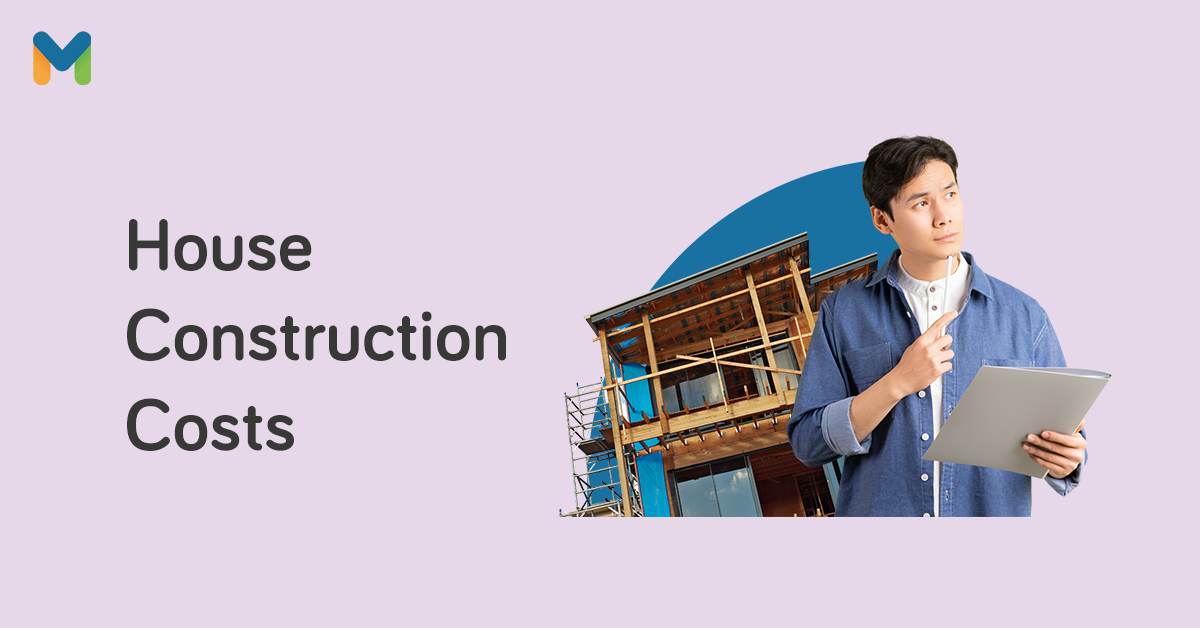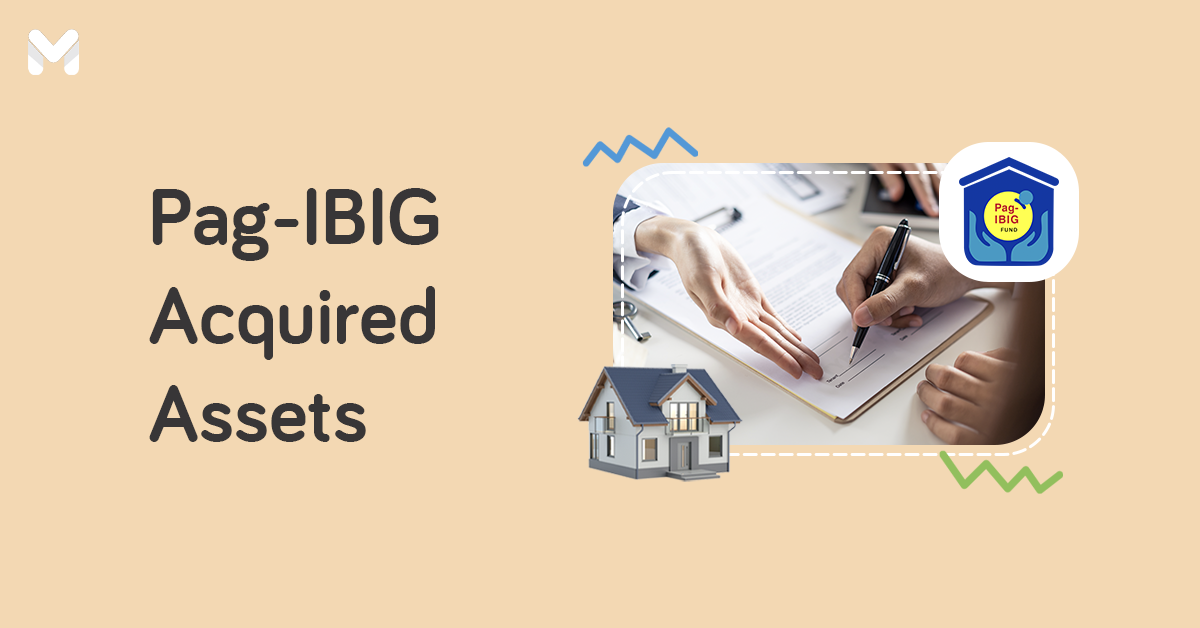Heard about the many benefits of owning a home from your family or friends? Envious of people sharing their cozy spaces and giving little house tours online? It’s enough to make you go house hunting and make a downpayment right away!
Just note that although home prices rose at a slower pace in the third quarter of 2023, monthly housing costs continued to increase because of high interest rates, according to the Bangko Sentral ng Pilipinas.[1]
What are these monthly housing costs future homeowners must know about? From property taxes to plumbing, let’s break down the costs of home ownership.
Cost of Home Ownership in the Philippines: Upfront and Hidden Expenses
-4.png?width=600&height=400&name=Pics%20for%20blog%20-%20600x400%20(36)-4.png)
Purchasing a new home is a big deal. But aside from the substantial house cost, you also need to prepare your finances to pay for the following:
🏡 Reservation Fee
You must pay a reservation fee to secure and reserve the unit under your name. If you’re buying a property, the reservation fee can cost anywhere from ₱1,000 for Pag-IBIG foreclosed properties to as much as ₱25,000 for condo units and single detached houses.
Related:
- Planning to Buy a House in the Philippines? 9 Signs You’re Ready
- Pros and Cons of Buying a House: What to Know Before the Big Purchase
🏡 Down Payment
A survey conducted by a property website a few years ago showed that Filipinos are afraid to buy a house.[2] About 41% of the respondents said it’s because they don't have enough savings to cover the deposit, while about 32% said they’re not sure they’re financially capable yet.
The hesitation to apply for a mortgage or buy a house is impacted by the fact that at least 10% of the total property value will be required as an upfront payment. For example, if you’re eyeing a house that costs ₱2 million, you need to make a down payment of at least ₱200,000.
Some would-be homeowners make the mistake of borrowing money with high interest just to get the funds. As a result, the loan repayments usually coincide with the house's monthly amortization, making home ownership costlier and more challenging.
🏡 Taxes and Other Fees
Real property tax, local transfer tax (if buying a previously owned property), appraisal fees, home loan processing fees, registration fees, and many other fees also add to the cost of home ownership. Indeed, buying a house is a huge financial undertaking.
🏡 Renovations
The upfront costs above are just half of the financial story. The hidden costs of home ownership are another. These include additional homeowner expenses, starting with renovation costs.
Whether you’re buying a foreclosed property or a newly built house, you’ll likely still want to change or improve the existing design and structure. A home renovation project can start from ₱40,000, depending on what changes you want to make to your property, like maybe getting a bigger kitchen sink or installing planters on your porch.
You can always opt to DIY. But before you proceed, consult an architect or engineer so they can check whether the change you want suits your house design or not. There might also be other important fixes your architect will discover during the evaluation process.
Read more: How Much Does It Cost to Build a House in the Philippines in 2023?
🏡 Repairs
-4.png?width=600&height=400&name=Pics%20for%20blog%20-%20600x400%20(37)-4.png)
Again, like renovation costs, repair costs will depend on the scope. Expect to pay for repair costs if you’re not the house's first owner. But if you’re lucky and the previous owner regularly maintained the house, you can save on these costs.
🏡 Moving Fees
Moving to your new home is another add-on to your house expenses. Depending on how much furniture and appliances you own, you’ll need a truck to transport them to your new place.
On average, the moving cost is ₱3,000. However, prices change for bigger transport vehicles and destinations outside Metro Manila. Prepare around ₱10,000 to ₱12,000 for this.
🏡 Water and Electricity Connection
New water and electricity service connections will also take up much of your expenses at home. For a new Meralco connection, you need to pay the following:
- Bill deposit - This guarantees the payment of your electricity consumption if you default on payments. The bill deposit depends on your declared estimated average bill each month.
- Cash advance - Upon service installation, Meralco will use poles, wires, and other materials, which will be charged against you as a cash advance. You may also need to pay for the costs of transformers and other accessories to facilitate the installation. But this cash advance is refundable. You may inquire about the terms and conditions of the refund from a Meralco branch near you.
Although you may not be required to spend on new installation and service connections for foreclosed homes, be warned about previous tenants' unpaid bills that may have accumulated and incurred interest and penalties.
🏡 Furnishings
-Jan-30-2024-08-57-43-9207-AM.png?width=600&height=400&name=Pics%20for%20blog%20-%20600x400%20(38)-Jan-30-2024-08-57-43-9207-AM.png)
A home won’t be complete without furniture and appliances to help you live comfortably. Although you can easily find what you need at malls and department stores, you can also find unique decorative pieces at stores that are off the beaten path.
Check out garage sales, flea markets, and tiangges as well. You just need a good eye and a vision of what you want your place to feel and look like.
🏡 Homeowners Insurance
If you’re a responsible homeowner, you must protect your home and its contents from damage and losses. This is why you need to get homeowners insurance.
The price will depend on where your house is situated, which items will be included, the house type, the size of the property, when it was built, and how many people reside there.
🏡 Safety Features
To give your home an added layer of protection and security, you must also install safety features.
Outdoor and indoor security cameras monitor and record activities inside and outside your property—which comes in handy when making an insurance claim due to property damage. You may also install fire safety features to help detect smoke that can potentially lead to fire or carbon monoxide poisoning.
Security cameras cost around ₱1,000 to ₱10,000, depending on the brand and type of set-up. Meanwhile, smoke and heat detectors cost around ₱500 to ₱2,500.
🏡 Pest Control
Even if you do your best to clean and maintain your home, you can’t always completely keep pests, such as rats and termites, away.
Preventive pest control can protect your property and prevent future infestations. If there’s already a pest problem, the treatment cost will depend on the type of pest and the severity of the infestation, the size of the property, and the number of pest control treatments required. Prices start at ₱2,500 per treatment.
🏡 Homeowner’s Association Dues
Once the property is turned over to you, you’ll need to pay association dues monthly to your property management office. These association dues keep your condominium or subdivision operational and cover maintenance, minor repairs, landscaping, security, pest control, and employee wages.
The cost will depend on the size of your property, its zonal value, your city or province’s tax rate, and the property developer. Expect to pay more if you own a condominium unit with parking.
Studio unit owners in Metro Manila pay around ₱80 to ₱150 per sqm per month for their condominium association dues. For example, if you own a 25-sqm condo unit, the association dues can range from ₱2,000 to ₱3,750.
Read more: How to Buy a Condo in the Philippines: Requirements, Process, and Tips
How to Reduce Home Ownership Costs
-3.png?width=600&height=400&name=Pics%20for%20blog%20-%20600x400%20(39)-3.png)
There are many ways you can cut your homeowner expenses. Here are a few cost-saving ideas:
- Choose an affordable neighborhood or location. Living in central business districts means higher association dues and real property taxes, even if you're living in a studio unit. Consider your budget and finances when choosing the best places to live in the Philippines.
- Reduce your utility expenses at home. Go for energy-saving lights and appliances. Clean your aircon filters often to help bring down your electricity bill. Check and patch up any leaks in your water lines.
- If you’re handy, take care of the upkeep and repairs yourself. Regularly do basic home maintenance instead of hiring someone to do it. Cut the grass in your yard, tighten loose cabinet screws, fix leaky faucets, or clean the gutter.
Final Thoughts
Now that you know the cost of home ownership, you can make a well-informed decision.
The costs largely depend on the location and the type of house you acquired. Still, budgeting and financial planning can help you discover ways to save and spend less on renovation, repairs, furnishing, and other additional homeowner expenses.
Be patient when taking account of everything and paying for it. Home ownership is a journey, after all. Despite the financial pains here and there, it’s still a very rewarding experience and an achievement to be proud of.
Need Help Funding Home Ownership Expenses?
Financing home ownership costs has never been so easy. Compare and apply for personal loan options via Moneymax below:
|
Provider
|
Loan Amount
|
Monthly Add-on Rate
|
Loan Term
|
Minimum Annual Income
|
Approval Time
|
|---|---|---|---|---|---|
|
UnionBank Personal Loan
|
Up to ₱2 million
|
26.9% per annum
|
12 to 60 months
|
₱250,000
|
As fast as 5 minutes
|
|
UNO Digital Bank Personal Loan
.png?width=149&height=52&name=Unobank-Logo-Colored_Horizontal-Medium%20(for%20MMX).png) |
₱10,000 to ₱500,000
|
1.79% per month (corresponds to annual contractual rates or annual percentage rates ranging from 35.78% to 37.54%)
|
Six to 36 months
|
₱240,000
|
Five to seven banking days
|
|
Metrobank Personal Loan
|
₱20,000 to ₱2 million
|
1.25% to 1.75%
|
36 months
|
₱350,000
|
Seven banking days
|
|
BPI Personal Loan
 |
₱20,000 to ₱3 million
|
Maximum annual contractual rate of 28.67%
|
12 to 36 months
|
Inquire with BPI
|
Five to seven banking days
|
|
Tonik Credit Builder
 |
₱5,000 to ₱20,000
|
4.84%
|
Six to 12 months
|
Inquire with Tonik
|
Two banking days
|
|
Tala

|
₱1,000 to ₱25,000
|
0.43% daily
|
Up to 61 days
|
None
|
Five minutes to 24 hours
|
|
HSBC Personal Loan
|
₱30,000 to ₱500,000
|
0.65%
|
Six to 36 months
|
₱168,000
|
Five to seven banking days
|
|
CIMB Personal Loan
|
₱30,000 to ₱1 million
|
As low as 0.83%
|
12 to 60 months
|
₱180,000
|
One to two banking days
|
|
Maybank Personal Loan
|
Up to ₱1 million
|
1.3%
|
Up to 36 months
|
₱300,000
|
Inquire with Maybank
|
|
RCBC Bank Personal Loan
 |
₱50,000 to ₱1 million
|
1.3%
|
Six to 36 months
|
₱360,000
|
5 to 7 banking days
|
|
PSBank Personal Loan
 |
₱20,000 to ₱250,000
|
|
24 or 36 months
|
₱180,000
|
Five to nine banking days
|
Sources:
- [1] Home prices rise further in Q3 (The Philippine Star, 2024)
- [2] Bakit Sya May Bahay, Ikaw Wala? (Zipmatch, 2015)







_1200x350.png?width=751&height=219&name=UB_PL_Generic_2_(Jan_2025)_1200x350.png)
_1200x350_CTA.png?width=1200&height=350&name=UB_PL_Generic_Ad_-_Home_Improvement_(Sep_2023)_1200x350_CTA.png)


